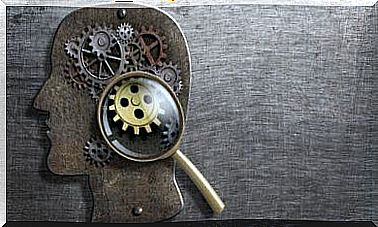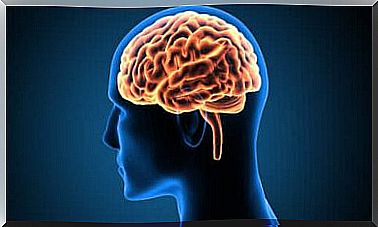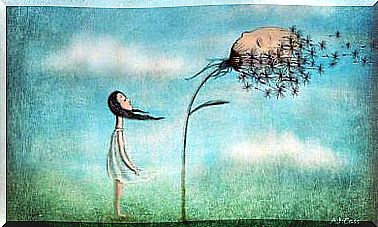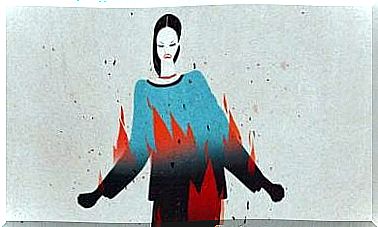Courage Is Making Things Happen

What makes a person brave? Maybe it’s lack of fear and great determination? Psychology has been analyzing this dimension for years. The consensus, curious as it is, is that courage is as simple as making things happen. It’s about generating positive change, even in difficult circumstances, in situations where others would give up.
Martin Seligman, promoter of positive psychology, said that the courage is the dimension that acts as one of the most curative components during therapy. Furthermore, it has genetic, educational and environmental roots.
Parents often instill a proactive attitude toward life in their children to remind them that they sometimes need to put fear aside to achieve their goals. People who didn’t have these reinforcements in childhood and grew up with insecurities or who had a traumatic experience often lack that courage.
Therefore, Seligman sees it as an essential element in the therapeutic process. It must arise thanks to the work between the professional and the patient’s effort. Thus, when a person makes a change, it is clear that he has learned to value his own determination. In other words, she will have enough motivation to transform her life.
That’s when she decides to mold and reach a new stage in which she will feel more control and security to achieve well-being. This is the best courage of all, the most enriching.
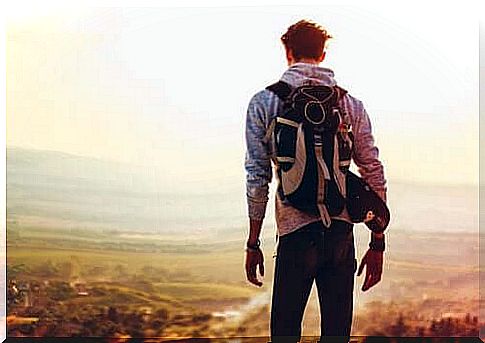
Courage is making things happen
The scientific literature says that courage arises as a result of a primary struggle with emotions such as fear. From a neurobiological point of view, it involves regulating the influence of the amygdala, the region of the brain related to the most intense emotions, the same one that paralyzes us and hijacks our thoughts upon taking power.
Likewise, it also implies improving areas such as the prefrontal cortex, linked to decision-making, reflection and planning, and attention to environmental stimuli without the influence of fear or anxiety. In fact, much of the research available on this type of behavior comes from the military sphere (Neria, Solomon, Ginzburg and Dekel (2000)) and from stories in which certain soldiers performed heroic acts when they were in great danger.
“I just stayed calm and did what I had to do”, say many of these young people trained to act in risky situations. But what about civilians? Can anyone be a hero without military training?
Doctors Uhri Kugel and Catherine Haussman conducted a study at Oxford University in which they revealed data worth knowing. Let’s analyze them.
Although courage is often romanticized, it is actually a cognitive skill.
Courage is making things happen because, with it, you bring about change. Furthermore, courage is focusing on a goal in the midst of adverse circumstances. And no, you don’t have to be a hero who fights dragons. According to current science, courage is a cognitive skill that anyone can learn and apply.
Basically, it’s about igniting your willingness to act in spite of fear, being able to look at uncertainty and doubt and then move on and act. You can achieve something like this by working the following dimensions:
- Properly manage anxiety. If you can recognize the thought patterns that hold you back, you can reset your mindset to act.
- Be emotionally aware. This is knowing how to connect with your emotions to transform and use them to your advantage.
- Remember what your values, vital purposes and personal goals are.
- Develop a very specific ability to visualize the desired changes you will achieve if you dare.

Courage is making things happen to have a more satisfying reality
Franco, Blau and Zimbardo (2011) defined courage as the ability to act pro-socially despite personal risk. Currently, this definition has received some criticism. This is because courage is not always aimed at saving others. Rather, courage is needed primarily to save yourself.
As Martin Seligman pointed out, for psychological therapy to be effective, you must awaken your courage. In other words, you must ignite your determination to overcome your fears, limitations and insecurities. This way, you will feel more empowered to achieve what you want. In addition, you will be able to promote changes that bring you closer to happiness.
As the saying goes, people often live on faith and hope. However, what can really transform your reality is action. That’s because courage is a mixture of emotions, thoughts and feelings oriented towards advancement, to promote something positive, either for yourself or for others. This is worth keeping in mind.


